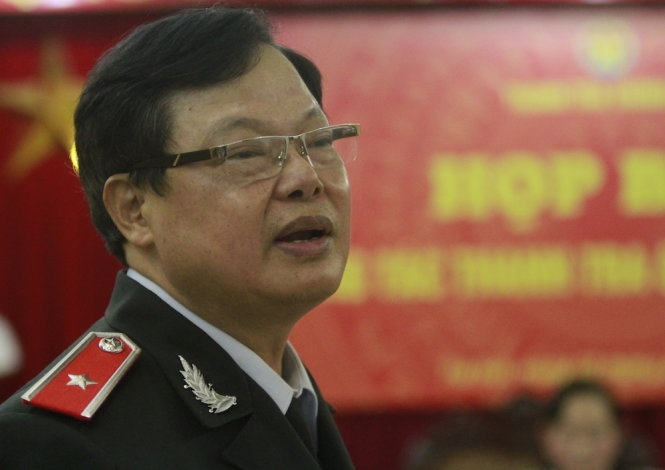.jfif) Opinion
Opinion

Phạm Trọng Đạt, Head of the Government Inspectorate Anti-corruption Bureau, spoke to the newspaper Tuổi Trẻ (Youth) about the need to create a new anti-corruption body in Việt Nam.
 |
Phạm Trọng Đạt, Head of the Government Inspectorate Anti-corruption Bureau, spoke to the Tuổi Trẻ (Youth) newspaper about the need to create a new anti-corruption body in Việt Nam.
What are some lessons learned after 10 years implementing the Anti-corruption Law 2015?
There are many lessons we’ve learned after 10 years implementing the law.
Under the law, all Government officials ranking from deputy manager of a department upward have to make an annual declaration of their assets and income.
But in reality, most of the declarations are just a formality.
In my opinion, the number of people who have to make annual asset declarations in Việt Nam is 100 times bigger than those in the Russian Federation. This means we should think about making some changes in the 2005 Anti-corruption Law. We think Việt Nam should narrow down the number of people having to declare their annual assets and income. And the assets and income disclosure must be posted in a public place in their offices for people to check and verify.
In your opinion, what should be changed in the 2005 Anti-corruption Law regarding officials’ asset declarations?
In my opinion, only people who are highly likely to be corrupt should have to declare their assets.
But what is more important is that when the list of people having to declare their assets is shortened, should their relatives also be required to declare their assets? Under the 2005 law, people who must declare their assets include Government officials themselves, their spouses and their children. However, in some cases, some officials may ask other people to act as their asset holders, including their parents, adult siblings, brothers, sisters or others. But, in my opinion, we have to think carefully about these ideas before writing them down in the law.
There was a proposal that the Government officials’ asset declarations must be posted on the internet and in public places where they live. However, until now the proposal remains just on paper. Do you know why?
This is a very sensitive issue. Where the information should be posted, we have to consider carefully.
We’re living in a society ruled by law. No one can say “I’m a minister or a senior Government official, so I don’t have to declare my assets.”
Under the 2005 Anti-corruption Law, all senior Government officials have to declare their assets annually. Their declarations are only posted in their offices for their staff or colleagues to read and verify.
Do you think we need to establish an independent anti-corruption agency that we assign special tasks?
One of the duties of the Government Inspectorate Anti-corruption Bureau is to act in accordance with the Anti-corruption Law and the Inspection Law. But under the Inspection Law, the only right that we - government inspectors - have is to write petitions and proposals and submit them to authorised agencies to handle.
In my opinion, we should set up a new anti-corruption body that operates independently in its investigation into more serious cases.
Do you think Vietnamese anti-corruption agencies can handle foreign corruption cases involved in the Panama Papers scandal?
Yes. In the fight against corruption we have worked closely with foreign counterparts. The most notable case was the arrest of Giang Kim Đạt, a former manager of the Business Section of Vinashin, who embezzle US$18.6 million while he was hiding in Singapore.
I think Việt Nam must complete its legal framework in the course of international integration, particularly in the fight against corruption._ VNS




